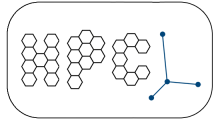The course provides basic knowledge in the programming of distributed memory architectures using the Message Passing Interface (MPI) standard. After presenting the basic concepts of high-performance computing and the main areas of their application, the methods for evaluating the efficiency and characteristics of sequential and parallel computing are considered. The following is a presentation of the basics of the MPI standard and its application for creating portable parallel programs. Some profiling and adjustment techniques are also discussed. The course includes practical classes on the multiprocessor Linux cluster, PhysOn. A test and a final course project are provided for the current verification of the mastering of the material. Since MPI is an industry standard, the knowledge acquired during the course will allow students to develop parallel software on multiple industrial platforms for which MPI implementations exist. : Sun SunFire, IBM SP2, SGI, Cray T3, workstation clusters. They will be able to participate in the creation of scientific programs for the analysis of large data sets: noise reduction and image recovery. SP2, SGI, Cray T3, workstation clusters
